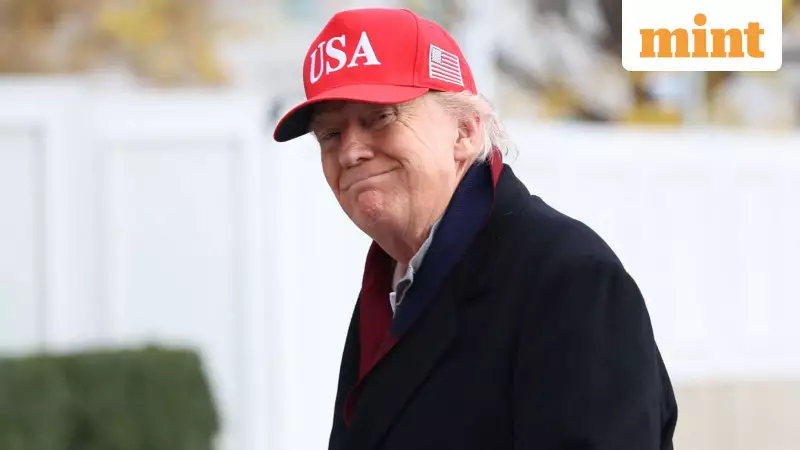
Trump's Controversial Peace Plan Sparks Bipartisan Outrage
American senators have revealed that the peace proposal being pushed by President Donald Trump for Ukraine conflict resolution is actually a Russian "wish list" rather than an authentic US plan. This shocking disclosure came from US Secretary of State Marco Rubio during discussions with lawmakers at an international security conference in Canada.
The controversial 28-point peace plan was developed by the Trump administration and Kremlin without any involvement from Ukrainian officials. The proposal includes numerous concessions to Russian demands that Ukrainian President Volodymyr Zelenskyy has repeatedly rejected, including surrendering significant Ukrainian territory to Moscow.
Senators Compare Plan to Historic Appeasement
Independent Maine Senator Angus King, a member of the Senate Foreign Relations Committee, delivered scathing criticism during panel discussions at the Halifax International Security Forum. "It rewards aggression. This is pure and simple. There's no ethical, legal, moral, political justification for Russia claiming eastern Ukraine," King stated emphatically.
Drawing historical parallels, King compared the proposal to British Prime Minister Neville Chamberlain's infamous Munich Pact with Adolf Hitler in 1938 - a reference to one of history's most disastrous acts of appeasement that failed to prevent World War II.
The senators' opposition represents growing bipartisan concern, including from some Republican lawmakers, though none possess the power to block the plan independently. The delegation at the Canadian forum included a Democrat, an Independent, and a Republican senator not seeking reelection next year.
Secretary of State Confirms Russian Origins
According to Senator King, Secretary of State Rubio explicitly told them the plan "was not the administration's plan" but rather a "wish list of the Russians." This confirmation came as Rubio prepared for crucial talks with European and Ukrainian officials in Geneva.
Democratic Senator Jeanne Shaheen reinforced this revelation, stating "This is a Russian proposal. There is so much in that plan that is totally unacceptable." She noted that Rubio had reached out to her and Republican Senator Mike Rounds from South Dakota regarding the matter.
Senator Rounds from South Dakota provided additional clarity, emphasizing that "it is not our peace plan" and that "this administration was not responsible for this release in its current form." He suggested the administration wants to use it as a starting point for negotiations, though he notably commented that "it looked more like it was written in Russian to begin with."
Republican Criticism and Global Reactions
Republican Senator Thom Tillis of North Carolina expressed dissatisfaction with former Republican Senate leader Mitch McConnell's criticism of the plan. While McConnell stated that "if Administration officials are more concerned with appeasing Putin than securing real peace, then the President ought to find new advisers," Tillis felt this didn't go far enough.
"We should not do anything that makes Putin feel like he has a win here. Honestly, I think what Mitch said was short of what should be said," Tillis remarked. This criticism comes after Tillis announced he wouldn't seek reelection following clashes with the Trump administration over tax and spending policies.
Russian President Vladimir Putin welcomed the proposal late Friday, suggesting it "could form the basis of a final peace settlement" if the US can secure agreement from Ukraine and European allies.
Ukrainian President Zelenskyy, while not outright rejecting the plan, insisted on fair treatment and pledged to "work calmly" with Washington and other partners during what he described as "truly one of the most difficult moments in our history."
The Halifax International Security Forum, now in its 17th year, typically attracts about 300 military officials, US senators, diplomats and scholars annually. This year's event saw significant US senator participation partly due to strained US-Canada relations, with Trump alienating America's neighbor through trade wars and controversial statements about Canada becoming the 51st US state.
Senator Shaheen highlighted the concerning diplomatic fallout, noting that "There's real concern about that strain. That's one reason why there's such a big delegation here." She committed to objecting to the president's tariff policies and comments, which she believes show "a lack of respect of sovereign nations" and prove detrimental globally.





